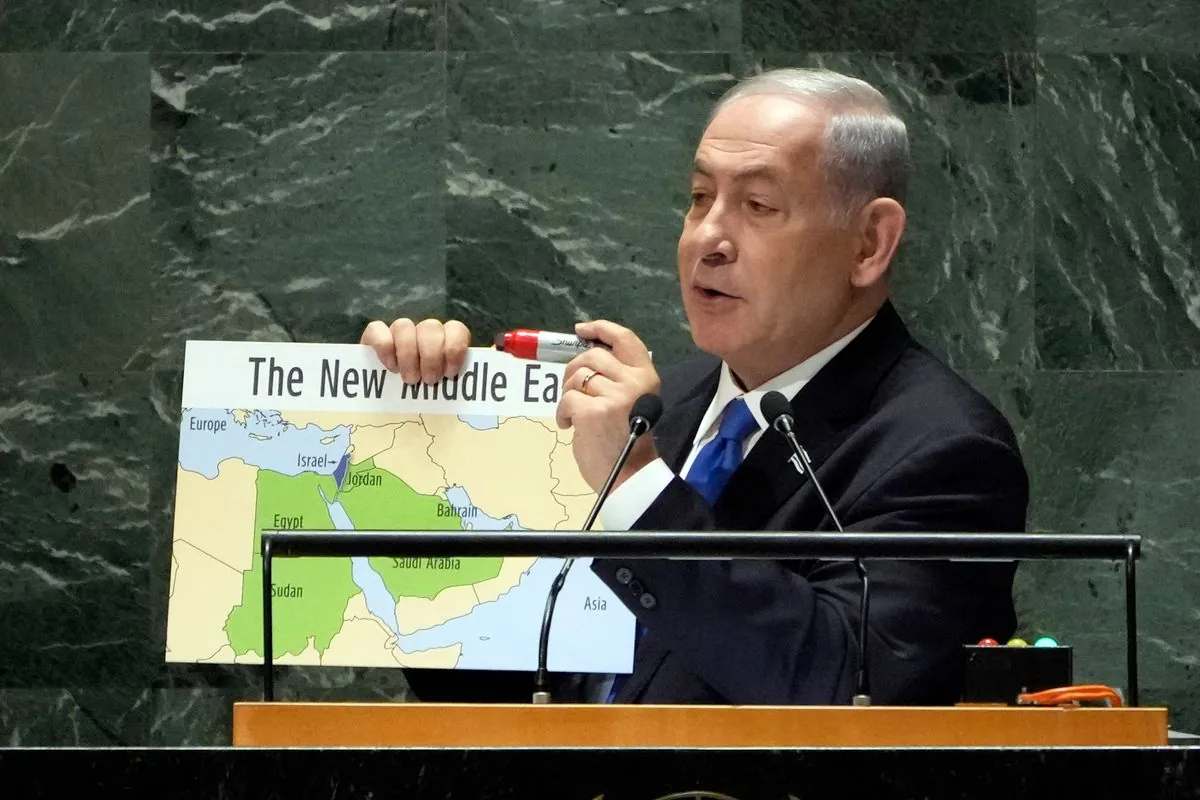Netanyahu's Border Stance Hinders Gaza Cease-Fire Deal
Israeli PM's insistence on troop presence along Gaza-Egypt border becomes main obstacle to hostage release agreement. US prepares final proposal amid rising tensions and growing concern for captives' safety.

Benjamin Netanyahu's demand for Israeli troops to remain in the Philadelphi Corridor has become the primary obstacle to a cease-fire and hostage release agreement with Hamas. This stance has created tensions with Egypt, the United States, and even within Israel's own political and security circles.
The Philadelphi Corridor, a narrow strip of land along the Gaza-Egypt border, was captured by Israel in May 2024. Netanyahu insists that maintaining a presence there is crucial for preventing weapons smuggling into Gaza. However, this position contradicts the 1979 Camp David Accords, which established peace between Israel and Egypt.
Egypt has strongly objected to any Israeli presence in the area, stating that it violates the long-standing peace treaty. Cairo has emphasized its efforts to combat smuggling, claiming to have destroyed over 1,500 tunnels in the past decade and creating a three-mile-deep militarized buffer zone on its side of the border.
The United States is preparing a final "take it or leave it" proposal for Israel and Hamas, potentially to be presented this week. However, the outlook for a successful agreement appears bleak, with mounting frustration among diplomats and officials involved in the negotiations.

"Netanyahu is focused on political survival, damaging relations with the U.S. while Iran edges closer to nuclear capability. The hostages must be brought back, even at a very high cost."
The fate of the remaining hostages in Gaza is becoming increasingly precarious. As of September 3, 2024, 97 hostages are still held, with only 64 believed to be alive. Hamas has issued ominous warnings about their safety, increasing pressure on the Israeli government to prioritize their release.
Alternative solutions for border security have been proposed, including the involvement of private security companies and the reinstatement of former Palestinian Authority employees at the Rafah crossing. The European Union has also expressed willingness to reprise its role in monitoring the border crossing, in collaboration with the Palestinian Authority.
However, these alternatives lack political will to be implemented. Critics argue that Netanyahu's stance on the Philadelphi Corridor is driven more by political considerations than security concerns. This has led to growing dissent within Israel's political and security establishment, with some officials openly criticizing the government's approach to the hostage situation.
As tensions continue to rise and the humanitarian crisis in Gaza worsens, the pressure on all parties to reach an agreement intensifies. The coming days will be crucial in determining whether a breakthrough can be achieved or if the current impasse will persist, further endangering the lives of hostages and civilians alike.


































